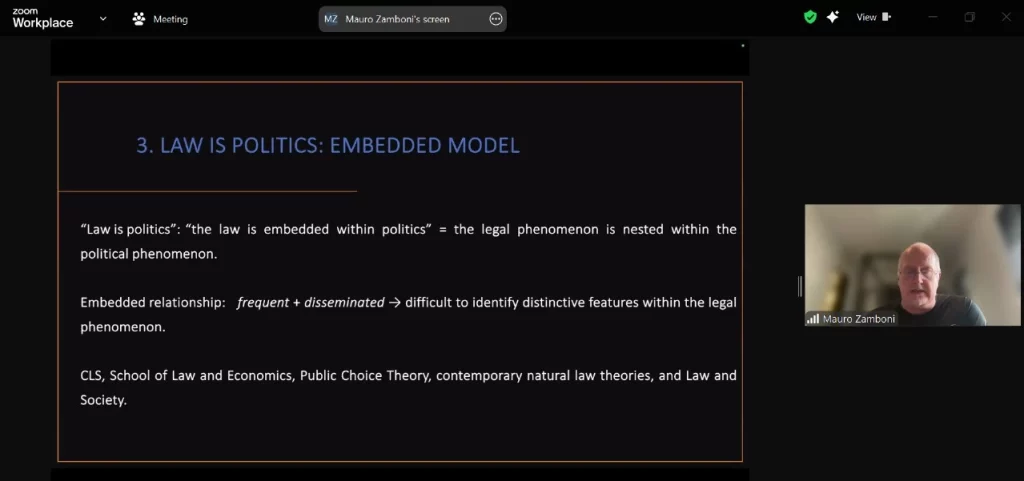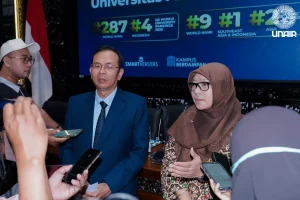UNAIR NEWS – The Faculty of Law (FH) Universitas Airlangga (UNAIR) recently hosted a guest lecture titled Legal Theory: Law and Politics, delivered virtually by Prof. Mauro Zomboni of Stockholm University on Wednesday (March 12, 2025).
During his presentation, Prof. Zomboni examined the intricate relationship between law and politics in modern legal theory. He argued that law is never completely separate from political influence but rather deeply interwoven with it throughout its creation and enforcement.
“The political nature of law is one of the fundamental questions in legal studies,” he remarked.
He further explained that as societies evolve, the intersection of law and politics becomes increasingly complex. Drawing on Habermas’ theories, he noted that the transition from traditional to modern societies requires a close interplay between legal frameworks and political authority.
“The welfare state dilemma arises when law becomes both politicized and specialized, widening the divide between the two,” he observed.
Three frameworks in contemporary legal theory
To illustrate this relationship, Prof. Zomboni outlined three major frameworks in contemporary legal theory. The autonomous model conceptualizes law as a self-contained system, governed by a rigid structure that remains largely insulated from political shifts. According to this perspective, legal principles operate based on their own internal logic, independent of external influences.
“Legal rules persist even when they carry political implications,” he said, citing Hart.
In contrast, the embedded model asserts that law is inherently political, shaped by external forces. This approach, he explained, is championed by schools of thought such as Critical Legal Studies and Law and Economics, which argue that law cannot be fully understood outside the broader social, economic, and political context.
“Law is always a reflection of societal needs and interests,” he stated.
Bridging these two perspectives is the intersectional model, which seeks to reconcile the rigidity of legal structures with the fluid nature of politics. This model acknowledges that while law possesses its own normative foundation, it is not impervious to political influence. In essence, law maintains its autonomous legitimacy while simultaneously responding to the political values and objectives present in society.
In his closing statement, Prof. Zomboni emphasized that the relationship between law and politics is one of continuous negotiation. While politicization can subject law to political pressures, legal specialization reinforces its independence. The challenge for modern legal theory, he concluded, is to strike a balance—ensuring that law remains a tool for justice while preserving its integrity as the backbone of a civilized society.
Author: Nafiesa Zahra
Editor: Khefti Al Mawalia









